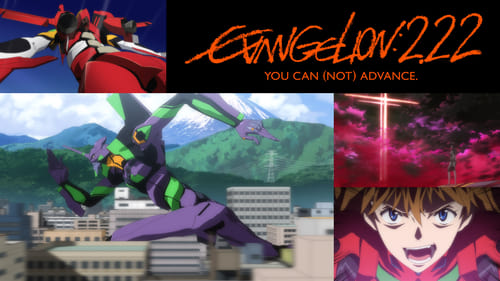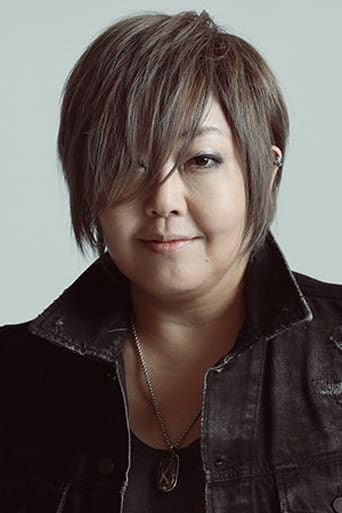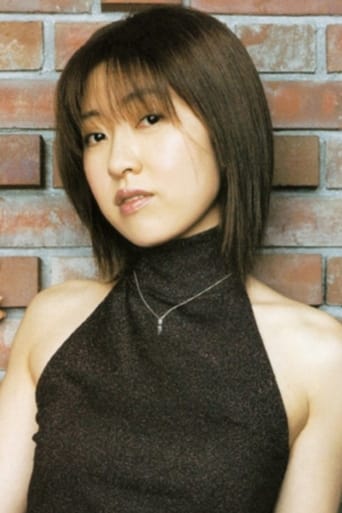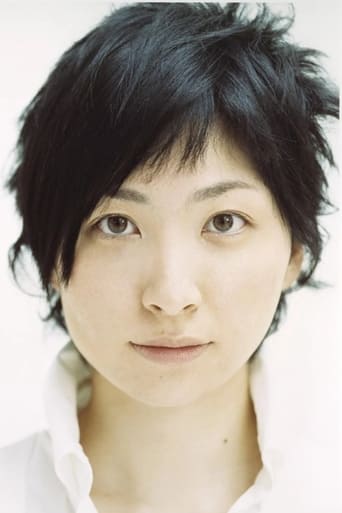Harockerce
What a beautiful movie!
Fluentiama
Perfect cast and a good story
Matialth
Good concept, poorly executed.
PiraBit
if their story seems completely bonkers, almost like a feverish work of fiction, you ain't heard nothing yet.
Freak Idiot
This review is based on the Blu-Ray release version 2.22Evangelion 2.0: You Can (Not) Advance (or 2.22 depending on the version you saw) is the most successful interpretation of Evangelion thus far. While the first remake film 1.0: You Are (Not) Alone felt much like a mere recap of the first six episodes of the series, the second film takes a different approach and reaches a remarkable level of success. Everything is smoother, more refined and simply better.The animation is gorgeous. The plot is more understandable. The characters are actually all likable this time. Many elements of the story are different, and the pretentious biblical gibberish seems to have taken a back seat. There is also warmth that was largely missing in the series: the characters seem to be genuinely content with their lives. Shinji isn't constantly mumbling about hating himself. Rei isn't a completely emotionless robot. Even Gendo seems more human. As a very small, but important detail we see his eyes through his shades far more than in the series, which may not sound like much, but it really makes a difference if you've watched the series.The story remains mostly the same. The events cover mostly what happens in the episodes 7-19 of the series, but with all the filler cut out. Only the most meaningful angel battles are left. Instead of feeling episodic like the first film, 2.0 actually feels like a proper movie with appropriate highs and lows and character development, culminating in a huge climax which is one of the most exciting action sequences ever seen in animation.The animation is top of the class. The level of detail is simply eye- popping, especially when watched in HD. With the help of CGI the angel battles look cooler than ever, and the evas are particularly impressive. The fairly simplistic characters are something of a letdown in comparison, but don't drag the overall presentation down.The sound is also vastly improved from the series. The music this time is appropriately epic, matching the scale and size of the evas and angels. The voice acting is on par with the series with most of the original cast reprising their roles. The ending song, an acoustic version of Utada Hikaru's "Beautiful World" feels perfect for the film, as if letting out a sigh of relief yet still leaving the feeling there's more to come.Yet there are still problems Evangelion can't seem to get rid of. The biblical imagery and names, though downplayed in this film, still feel somewhat goofy and superficial. Though the plot is more coherent, it still is very weird and it can be hard to grasp what exactly the big picture is. There is some weird dialogue and lines like "Do you hate pain?". Still, the rest of the film is good enough that the viewer is willing to overlook most of the flaws.Evangelion 2.0 is the best interpretation of the series thus far, and it left me eagerly waiting for more. I recommend seeing the 2.22 version, as it gives more insight to the characters and story. Highly recommended for both fans of the series and newcomers alike.
Twinsen61
Let me start by saying that I consider the original Evangelion show as one of the best animes ever made. One thing in particular made it special: the characters.Back then we got to spend a great deal of time with Shinji a teenager with a huge responsibility on his shoulders who does not carry it easily like an action hero stereotype but is rather deeply hurt by it and by his relationship with his father. I look at the Shinji in this movie and yes, he does seem a bit shy and... but wait! there's a big action sequence coming up! Damn does the new angel design look cool! Oh yes, where were we? The characters... well in the original series there was that totally weird blue haired girl the likes of which we'd never seen in another anime before. Rei was such an enigma, you had to guess if she was even human or not. Thankfully this is fixed now and yes, she is a bit strange... but wait! Big action sequence coming through! 10 minutes of gorgeous explosions and punches! Yay, this is amazing!! So back to Rei.. now she is cooking for a party. Isn't this lovely, that's more how a young girl should behave. Not like that Asuka who is now in an aggressive mood. Always. In the original show she used to be a lot more likable, maybe because we could see a more childish side of her. Now she's this annoying genius who feels lonely and... But wait another super-cool fight is starting after this 38th panty shot! Wow it's our new character! She's great and she's... umm...she's like...well... i don't really know, but she kicks ass!! This rebuild of Evangelion is so cool!!! Yeah...
eferoth
Thats just it. Awesome.The first rebuild movie just sort of retold the first six or so episodes of the original series. It looked great, but you could never shake the feeling of been there seen it (except for the improved Angels obviously) This one goes far, far beyond that. It sums up the plot of episode seven up to something around twenty. Thus it seems a little bit rushed, but on the flip side you're never able to catch your breath. The visuals are breathtaking at moments. The Angels are pretty much unrecognizable from their predecessors (which is a good thing in my opinion) and simply gorgeous to behold. The score also knows how to please.Where the movie really shines though is the story department. Instead of a retelling we get a re-imagining. Starting with a completely new character, piloting EVA05 and ending with a quite different... well ending. Its like they mixed the original episodes with End of Evangelion. While many scenes are still recognizable, they are often arranged differently or put into a completely different context. More than that, the movie strays from the source in quite a view key elements and reveals a lot of things far, far earlier than the original series. Also it explains far, far more. At the end of the ride you will have a pretty decent idea what the "Human Instrumentality Plan" is, for example. Something the original series didn't really bother to explain at all. There are completely new parts to the story as well. It's true that Asukas character falls a little short on screen time, but all in all I like her much better here than in the series. Her story ark and thus her development feels rushed but is still solid, and the ending is one of the biggest twists in this movie. And in the end... there are two movies left I think, and the way Asukas story goes in this one, she's fated to take on a much bigger role in future installments. In general the three children show new sides to them that were only hinted at before. Especially Rei gets a whole subplot that will definitely please fans of the character.All of this combined keeps you on the edge the whole time. You simply don't quite know where its headed. At the end of this second (of four) movies we have almost reached the end of the series which really makes me hope for an original very different outcome than before. Besides... the series was almost over at this point, but with the movies, we're only halfway there.In conclusion. If you liked EVA (and you're not a nitpicker), you're gonna love this. It's a hell of a ride. Don't miss it.
tinulthin
(PARTIAL SPOILERS) The first Rebuild of Evangelion, You Are (Not) Alone (a.k.a. Evangelion Shin-gekijoban: Jo), was essentially an upgraded distillation of the first six episodes of the original Shin Seiki Evangelion television series. Little was lost or added, and key scenes were recreated shot-for-shot, all the way down to the most famous "fan service" peek-a-boo angles.The second installation of the four-part Rebuild series, You Can (Not) Advance, sets itself an almost impossible task: To condense seven hours of the TV anime, episodes 7 to 20, into a single 108-minute feature.Continuing the tradition from the first Rebuild film, upgrades are everywhere. Both the bomb-Angel Sahaquiel and the satellite defenses deployed against it are unfurled with aplomb, and there's a fresh exhilaration to the Eva units desperately sprinting to the Angel's projected point of landfall. The preamble to the battle against the infected Unit 3 has been shortened, favoring instead an extended sequence of bloody desecration accompanied by a chillingly ironic selection of background music. The film concludes with a disturbingly metamorphic version of the unstoppable Angel Zeruel, and when Rei attempts to blow it up at close range, this time her N-2 bomb isn't just a cute little canister.Beyond these three points, however, the film is more an impressionistic retelling of the series than a literal one. In place of those strained scenes where Anno had characters stand stock-still for long, awkward moments, we have elaborate images of people moving about and living in Tokyo 3, and there's a pleasant sub-plot written in to unite all the main characters. Shinji is allowed to be slightly stronger, even revealing a useful domestic skill, and we lose much of his protracted soul-searching, though we still get a taste of it toward the end of the film.While the TV series was sometimes criticized for its tendency to stop and navel-gaze, with the reduced run-time there is inevitably a rushed feeling to You Can (Not) Advance, and nobody suffers for it more than Asuka.Asuka arrives frenetically and with minimal introduction, seeming to have been given license to chew the scenery in exchange for the little time she's allowed on it. Her "Sohryu" inexplicably replaced by "Shikinami," Asuka retains variants of a few of her most memorable scenes, but her early arguments with Shinji feel forced, and we lose delightful sequences like the synchronized battle against the splitting Angel Israfel. Asuka shows more depth more quickly than she did in the series, but it feels as though she has to fight for every moment of screen time.Rather than bringing anything unique to the franchise, new character Makinami Mari Illustrious seems to be little more than a bloodthirsty stand-in for Asuka. Where Asuka has been toned down, Mari has gone over-the-top, and her scenes could just as easily have been written for the redheaded half-German girl.Sadly, while the TV series had remarkably good incidental English (if horrible incidental German), You Can (Not) Advance opens with a lengthy sequence dubbed by English speakers who were clearly phoning it in. Kaji gives it his best shot, but he's given lines that are well beyond the capabilities of seiyu Yamadera Koichi.Like its predecessor, You Can (Not) Advance aims for nothing less than shock-and-awe. The lack of breathing time, coupled with some wrenching twists to the original story, enhance the intensity tenfold. Be sure to stick around until the end of the credits, where you will find not only an ad for the next film, but a very important concluding scene as well.










